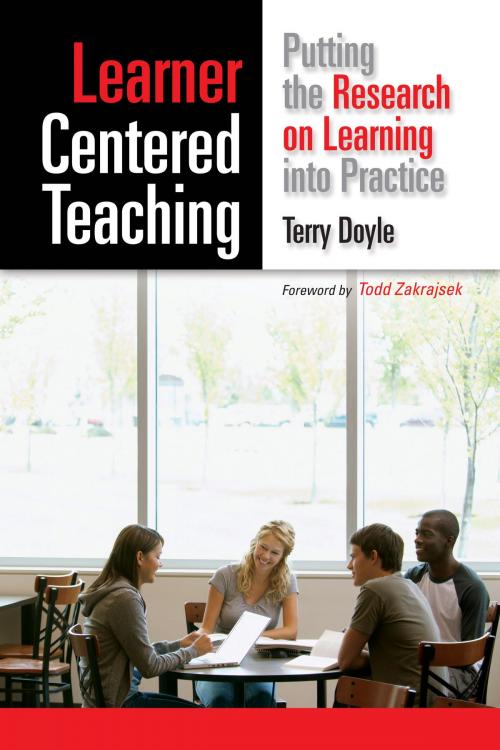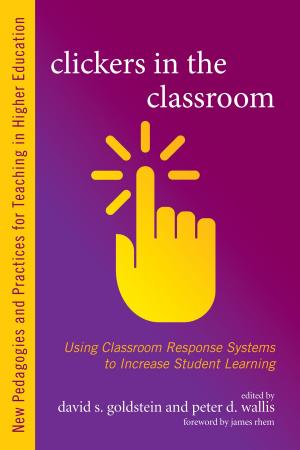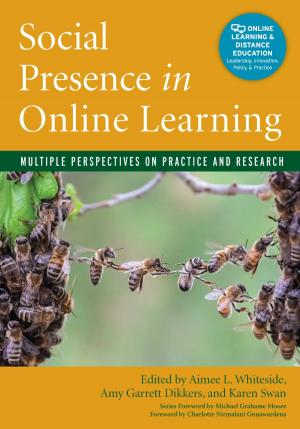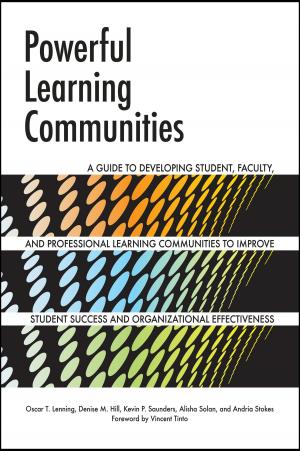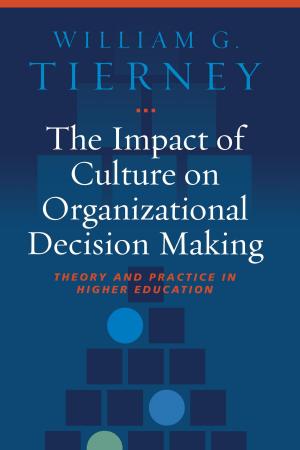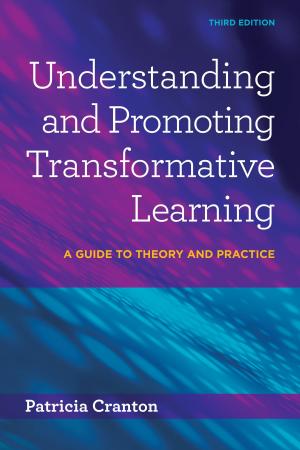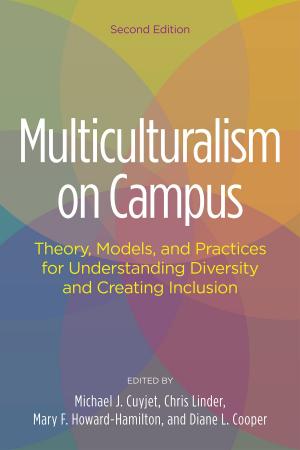Learner-Centered Teaching
Putting the Research on Learning into Practice
Nonfiction, Reference & Language, Education & Teaching, Higher Education| Author: | Terry Doyle | ISBN: | 9781579227456 |
| Publisher: | Stylus Publishing | Publication: | July 27, 2012 |
| Imprint: | Stylus Publishing | Language: | English |
| Author: | Terry Doyle |
| ISBN: | 9781579227456 |
| Publisher: | Stylus Publishing |
| Publication: | July 27, 2012 |
| Imprint: | Stylus Publishing |
| Language: | English |
"This book is essential reading for everyone in higher education. Doyle has marshaled the evidence that proves the effectiveness of learner-centered pedagogy, and he has presented that research in a very accessible and engaging style.”?Michael Harris, Chancellor and Professor of Public and Environmental Affairs, Education and Business, Indiana University
This book presents the research-based case that Learner-Centered Teaching (LCT) offers the best means to optimize student learning in college, and offers examples and ideas for putting it into practice, as well the underlying rationale. It also starts from the premise that many faculty are much closer to being learner-centered teachers than they think, but don’t have the full conceptual understanding of the process to achieve its full impact. There is sometimes a gap between what we would like to achieve in our teaching and the knowledge and strategies needed to make it happen.
To enable faculty to navigate this shift, Terry Doyle presents an LCT-based approach to course design that draws on current brain research on cognition and learning; on addressing the affective concerns of students; on proven approaches to improve student’s comprehension and recall; on transitioning from “teller of knowledge” to a “facilitator of learning”; on the design of authentic assessment strategies – such as engaging students in learning experiences that model the real world work they will be asked to do when they graduate.
The presentation is informed by the questions and concerns raised by faculty from over sixty colleges with whom Terry Doyle has worked.
This book presents the research-based case that Learner-Centered Teaching (LCT) offers the best means to optimize student learning in college, and offers examples and ideas for putting it into practice, as well the underlying rationale. It also starts from the premise that many faculty are much closer to being learner-centered teachers than they think, but don’t have the full conceptual understanding of the process to achieve its full impact. There is sometimes a gap between what we would like to achieve in our teaching and the knowledge and strategies needed to make it happen.
To enable faculty to navigate this shift, Terry Doyle presents an LCT-based approach to course design that draws on current brain research on cognition and learning; on addressing the affective concerns of students; on proven approaches to improve student’s comprehension and recall; on transitioning from “teller of knowledge” to a “facilitator of learning”; on the design of authentic assessment strategies – such as engaging students in learning experiences that model the real world work they will be asked to do when they graduate.
The presentation is informed by the questions and concerns raised by faculty from over sixty colleges with whom Terry Doyle has worked.
"This book is essential reading for everyone in higher education. Doyle has marshaled the evidence that proves the effectiveness of learner-centered pedagogy, and he has presented that research in a very accessible and engaging style.”?Michael Harris, Chancellor and Professor of Public and Environmental Affairs, Education and Business, Indiana University
This book presents the research-based case that Learner-Centered Teaching (LCT) offers the best means to optimize student learning in college, and offers examples and ideas for putting it into practice, as well the underlying rationale. It also starts from the premise that many faculty are much closer to being learner-centered teachers than they think, but don’t have the full conceptual understanding of the process to achieve its full impact. There is sometimes a gap between what we would like to achieve in our teaching and the knowledge and strategies needed to make it happen.
To enable faculty to navigate this shift, Terry Doyle presents an LCT-based approach to course design that draws on current brain research on cognition and learning; on addressing the affective concerns of students; on proven approaches to improve student’s comprehension and recall; on transitioning from “teller of knowledge” to a “facilitator of learning”; on the design of authentic assessment strategies – such as engaging students in learning experiences that model the real world work they will be asked to do when they graduate.
The presentation is informed by the questions and concerns raised by faculty from over sixty colleges with whom Terry Doyle has worked.
This book presents the research-based case that Learner-Centered Teaching (LCT) offers the best means to optimize student learning in college, and offers examples and ideas for putting it into practice, as well the underlying rationale. It also starts from the premise that many faculty are much closer to being learner-centered teachers than they think, but don’t have the full conceptual understanding of the process to achieve its full impact. There is sometimes a gap between what we would like to achieve in our teaching and the knowledge and strategies needed to make it happen.
To enable faculty to navigate this shift, Terry Doyle presents an LCT-based approach to course design that draws on current brain research on cognition and learning; on addressing the affective concerns of students; on proven approaches to improve student’s comprehension and recall; on transitioning from “teller of knowledge” to a “facilitator of learning”; on the design of authentic assessment strategies – such as engaging students in learning experiences that model the real world work they will be asked to do when they graduate.
The presentation is informed by the questions and concerns raised by faculty from over sixty colleges with whom Terry Doyle has worked.
